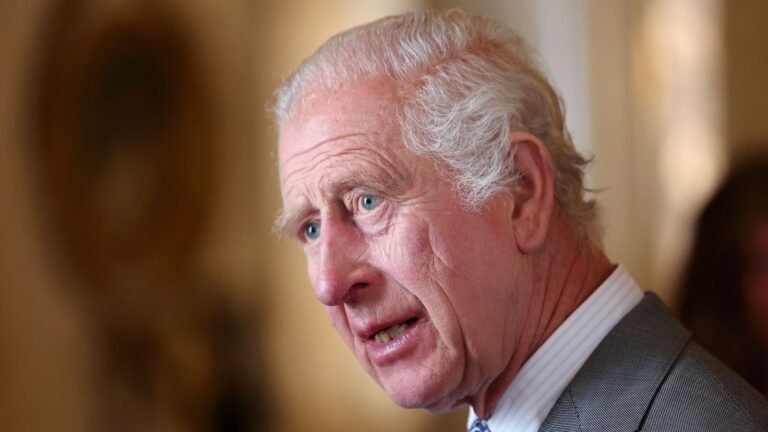The relationship between politics and the palace is a delicate one, even more so during a general election campaign.
Political parties run election campaigns, rolling out policies and bizarre stunts to try to garner support.
But there is one family that doesn’t vote: the royal family.
So what are the rules when it comes to politics and the monarchy?
Does the King vote?
Although it’s not specifically stated in the law, the answer is no.
Dr Craig Prescott, a law lecturer and constitutional law expert at Royal Holloway University in London, said: “Clearly the monarch has a special position as head of state and is therefore expected to remain ‘above’ politics.”
“Not voting on election day reflects this position. There are further constitutional reasons: members of the House of Lords cannot vote because they are members of Parliament, and so the situation has been that Lords do not have the right to vote for members of the other House.”
“In this sense, the practice of the monarch not voting reflects the fact that the monarch is a member of Parliament and that it is up to the ordinary people to choose who represents them in the House of Commons.”
The King visits the Royal Academy of Dramatic Art
Will the rest of the family vote?
“All members of the royal family except the monarch can vote,” Sky News commentator and constitutional expert Alastair Bruce said.
“Traditionally, they do not vote. This is mainly to protect the apolitical nature of their support for the monarch, but also because in the past, as royal dukes they could hold seats as peers in the House of Lords, which meant that many male members of their families were prohibited by law from voting.”
Mr Bruce added: “The hurdle to voting in elections was technically removed when in 1999 the Royal Family agreed to withdraw their seat and speaking rights in the House of Lords.”
Dr Prescott said: “Like the monarch, members of the royal family who hold peers were barred from voting because, as peers, they are technically members of the House of Lords.”
“The Lords Reform Act 1999 changed this, removing most hereditary peers from the House of Lords and giving peers who were no longer members the right to vote for the first time.”
“So this would also apply to Prince Philip, the Duke of Edinburgh, Prince Charles when he was Duke of Cornwall and Prince Andrew when he was Duke of York. However, for the same reasons as the monarch, it is expected that working members of the Royal Family will not vote, because the monarchy as a whole is expected to be above politics and to follow the guidance of the King.”
Interestingly, in 2020, the Duchess of Sussex said in an interview that Prince Harry was never “allowed” to vote.
However, members of the royal family who are not “working royals”, such as Zara Tindall and David Armstrong-Jones, 2nd Earl of Snowdon, can vote. It’s not entirely clear whether they will be able to vote.
read more:
King receives first sapling from felled Sycamore Gap tree
King breaks tradition with fist bump at palace
What does ‘purdah’ mean to the royal family?
“Purdah” as the administration calls it, is the “sensitive period before elections.”
Of course, the King has an important role to play in relation to the general election: Rishi Sunak, in his election announcement speech outside Number 10, said he had informed the King of his intention to call an election.
The King has exercised his prerogative to dissolve Parliament and convene a new one. Once the votes are counted, the King will formally appoint a prime minister.
But Alastair Bruce said it was important in the weeks leading up to the polls that the royals avoid doing anything that could be perceived as flippant commenting on the election campaign or policy commitments.
This will be the first general election during the King’s reign.
Shortly after convening, Buckingham Palace announced that the royal family would be postponing their engagements. “It could be seen as a distraction or a distraction from the election campaign.”.
But the King Participate in a military flag ceremonyThis corresponds to the election campaign period in June.
The King and Queen attend a service at St Paul’s Cathedral
What has already been postponed and what may be cancelled? They don’t vote, but are they political?
It is well known that immediately after the general election was called, official engagements for both the King and Prince Charles were postponed. Meetings were also held at the Palace to decide which visits would be appropriate.
It is unclear how many visits exactly have been postponed, and officials are waiting to see whether the emperor’s state visit at the end of June will go ahead as scheduled.
The experts said: It’s interesting that the Palace felt the need to make a statement. He said the terms of the contract are currently under review.
While nothing like that happened during Queen Elizabeth’s reign, some point out that this is a sign that the royal family is becoming increasingly involved in social movements that may have political leanings.
So over the next few weeks, we can expect a lot of ceremonial events, as is typical at this time of year, but nothing politically charged.

